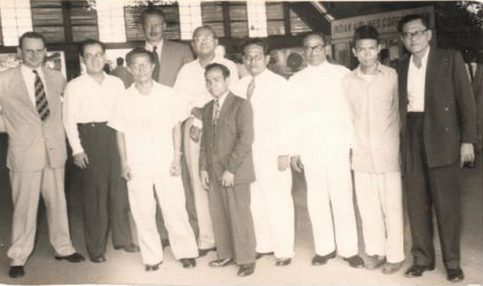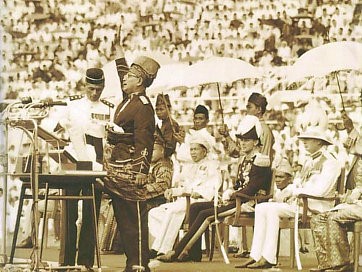Tunku Abdul Rahman: Founding Father, Independence Fighter
’We are all Malaysians. This is the bond that unites us. Let us always remember that unity is our fundamental strength as a people and as a nation.’ – Tunku Abdul Rahman
Over 30 million Malaysians today owe the country’s independence to its Founding Father, Tunku Abdul Rahman. Born into the Kedah royalty in February 1903, Tunku surprisingly was never one to put on airs, preferring to play with the village boys than follow the Court Retainer submissively to school. At Cambridge University, Tunku switched his degree from an Honours to a Pass, much to the regent family’s chagrin. He was sent back to the UK to take the Bar examination, which he did not pass. However, Tunku’s intelligence and leadership quality were never in question, as attested by the fact that he was asked to lead the Malay Society of Great Britain.
In 1931, Tunku became a government servant in Kedah Civil Service as a Cadet and eventually transferred to Kulim as an Assistant District Officer, spending most of his time understanding the issues faced by the civilians of Kulim and putting himself in the shoes of the public. By the end of 1940, Tunku held several official positions at various states, always having to move around because his strong-minded fights for the people’s rights made him unpopular with officials. Eventually, he left for London to take the Bar examination. World War II prompted his return to Malaya, and the end of the Japanese occupation marked the start of his journey in securing its independence.
Tunku became the President of United Malay National Organization (UMNO) in 1951, a role he initially declined to accept were it not for his love for the people. Though he kept UMNO as an exclusively Malay organisation, he began fostering ties with the Chinese and Indian communities, culminating in the Alliance Party in 1954 comprising UMNO, the Malaysian Chinese Association and the Malaysian Indian Congress. The Alliance Party went on to win 51 of the 52 seats in the first Malayan general election.
The national delegation for the trip to London, discussing the constitution of Malaya
When he realized that the people of Malaya were ready, Tunku paved the road for the nation’s independence by holding constitutional talks and setting up an independent commission in London in early January 1956. The steps towards independence concluded with the signing of the Independence Agreement on 8 February 1956, which coincided with Tunku’s 53rd birthday. On 3 June 1957, over 2,000 people emotionally gathered to celebrate the success of Tunku’s trip from London, which bore with it the announcement of the date of Malaya’s independence: 31 August 1957.
Tunku’s iconic moment: shouting ‘Merdeka’ (Malay for independence) in a stadium filled with the newly liberated people
As the son of a Sultan, Tunku definitely enjoyed advantages that weren’t available to a commoner, such as speeding down UK streets in a Riley sports car. But he had relied on his own determination to become the Father of Malaysia’s independence. In his last publicly broadcast speech, Tunku reminded the people that they were the ones who really held power in the nation. For the first Prime Minister of Malaysia, it was the only way he had led the country: by people’s approbation.


